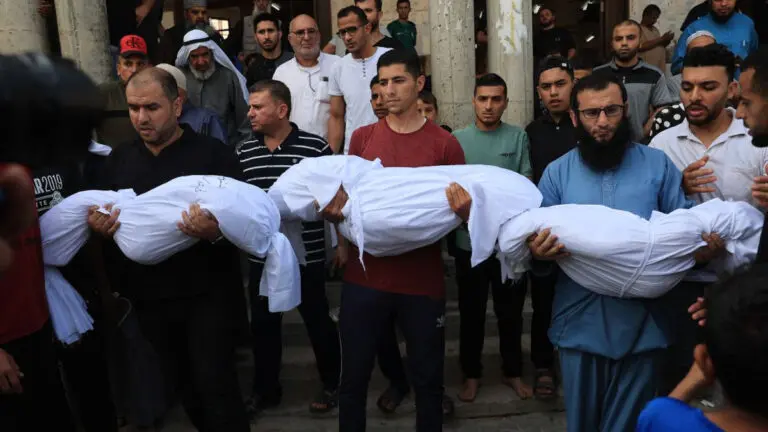
Gaza City, November 15 (RHC)-- The U.S. State Department says it will not be limiting the weapons it supplies to Israel, elaborating only that it has not been able to “reach an assessment” that Israel is not working to allow sufficient aid into the enclave that it has been bombing for more than 13 months.
In mid-October, the U.S. said Israel had 30 days to ease the humanitarian crisis it caused in Gaza, a month later, it acknowledged the humanitarian situation in Gaza remained dire but said it would not impose a ban on selling more weapons to Israel to continue its war.
With winter approaching and no letup in the current siege conditions imposed by the Israeli military on all of Gaza, residents and aid agencies say they fear that worse is still to come.
In its October 13 letter to Israeli Prime Minister Benjamin Netanyahu, the State Department appeared to address some of the concerns over the humanitarian crisis its unflinching support of Israel’s war on Gaza had produced.
U.S. Secretary of State Antony Blinken and Defense Secretary Lloyd Austin demanded, among other things, a written commitment that Israel was not pursuing a siege of Gaza’s north in line with what is commonly referred to as the “General’s Plan.” Netanyahu has reportedly made such assurances verbally but refused to commit to them publicly.
The letter also called on Israel to permit at least 350 trucks of aid into Gaza daily, open a fifth crossing, permit people trapped in Israel-imposed coastal displacement camps to move inland before winter, allow aid agencies to enter Gaza’s north, which is suffering a siege within a siege, and halt the implementation of the recent legislation blocking the United Nations agency for Palestinian refugees (UNRWA) from operating in the Strip.
Eight international aid agencies – Anera, Care, MedGlobal, Mercy Corps, the Norwegian Refugee Council, Oxfam, Refugees International and Save the Children – warned on Tuesday that Israel has not met “any of the specific criteria set out in the US letter”.
That evening, State Department spokesperson Vedant Patel announced the US would take no action against Israel, telling reporters and, by extension, the two million people trapped in Gaza: “The point is not about specific steps.”
“The situation is now beyond desperate,” Louise Wateridge, UNRWA’s senior emergency officer, wrote in a message from Gaza’s north. “There are no words left to describe the misery and suffering inflicted upon people here. People scrambling over a bag of flour. Families … begging for water. There is absolutely no humanity here,” she said.
Israel, in addition to killing more than 43,700 people, has forced about 90 percent of Gaza’s population to flee their homes to face the daily realities of starvation and disease in tattered camps that it often bombs.
Compounding the unparalleled suffering, the UN said, was Israel throttling the number of aid trucks it allows into the blockaded enclave to an all-time low in October.
Since October, Israel has exacerbated the challenges of aid distribution, splitting the enclave into two, with an estimated 69,000 people north of the Israeli siege line, the Netzarim Corridor, blocked from accessing the aid they need to live.
The UN Inter-Agency Standing Committee has found that the entire population of northern Gaza is at “imminent risk of dying from disease, famine and violence.” Conditions are only marginally better in the south, where disease is spreading, food is limited and thousands of families are crowded together in horrendous shelter conditions, aid workers in Gaza told Al Jazeera.
“We need more aid, we need more access, we need more crossings, we need more humanitarian responders on the ground to continue this response and to build on this response,” Wateridge said from Gaza.
Israel has made some moves to increase aid slightly in recent weeks and to expand the “humanitarian zones” it imposed and bombs often, despite the thousands of displaced families sheltering there.
[ SOURCE: Al JAZEERA ]

